 I have the privilege of having a granddaughter with severe cerebral palsy. Whenever anyone finds out they always respond with, “Oh, I am so sorry.” They don’t need to be sorry. Maggie is one of the happiest human beings I know. Her mother loves her and magnificently cares for her. I have the privilege of living in a four-generation home and I see what having a special needs child can entail. There is no getting around how challenging it is, but there is also no getting around how rewarding it can be, how you are changed and privileged to grow.
I have the privilege of having a granddaughter with severe cerebral palsy. Whenever anyone finds out they always respond with, “Oh, I am so sorry.” They don’t need to be sorry. Maggie is one of the happiest human beings I know. Her mother loves her and magnificently cares for her. I have the privilege of living in a four-generation home and I see what having a special needs child can entail. There is no getting around how challenging it is, but there is also no getting around how rewarding it can be, how you are changed and privileged to grow.
I have a dear friend who has special needs and is a brittle diabetic to boot. She and I go to our temple once a month. I have had to learn how to manage if she has a diabetic episode and that has worked out well. I have had to learn how to help her when I take her shopping because, although she is 54, she shops like a ten-year-old. Not one large container of kitty litter but four, because you don’t want to run out. : )
Michelle usually stops at my home once a week when she walks her dog, Max, in winter, or summer. It’s fun having the mini-conversations that occur, while constantly telling Max to sit. : ) I have had her in my home teaching her to make treats that are wheat and sugar-free. My husband is a diabetic, so I have had lots of experience. I have taught her to make ice cream bars, cheese crisps, and granola, to name a few. Again, it has been rewarding and I have changed and grown just knowing and serving, Michelle.
I had a friend years ago who had six children and will remain anonymous, per her request. Their special needs ranged from autism to dyslexia. From anxiety to cerebral palsy. From nut allergies to regular growing-up issues. She said, “Being the mother of special needs children is an honor and a privilege. The blessings that have come to our family cannot compare to anything else. We are blessed to see life through a unique perspective.”
Life is Full of Difficulties and Challenges for Every Family, Special Needs or Not.
My friend often said when you are working and teaching children with special needs you need to learn to think outside the box, inspire in simple ways, and continually re-group and re-focus your efforts. This is true. I have watched Jodie learn to do this. I saw Michelle’s mom doing it. And I had to do it with my seven children. This mom called it taking the ‘scenic route’, when you find joy and beauty despite the difficulties you encounter along the way.
Most of you who read my articles have children without special needs, at least not the kind I have referenced above. However, is there any child who doesn’t have special needs? Is there any time we don’t have to re-group as each child grows and changes how they think and feel? Parenting is all about thinking outside the box, inspiring in simple ways so that individual children can move forward to their destinies, and re-grouping and re-focusing as we go along. It can feel intimidating, but with prayer, thoughtful pondering, and eyes that see, it can be done.
Practice Out of the Box Thinking
My friend who made the above comment told me she always felt like an out-of-the-box sort of girl. Once, she told her mom while doing chores differently than her mom had taught her, “There is more than one way to skin a cat.” While raising her children with all their special needs, she realized how powerful this way of thinking was for her. She had to think out of the box. She had to let go of the sucker’s choice and seek the third option. She had to look for what was needed, not what was considered normal or expected.
My daughter Jodie and Michelle’s mother had to let go of the idea that everyone learns the same, needs to understand the same information, and needs to BE a certain way in the world. I’ll bet you have kiddos who are square pegs trying to fit into round holes.
My dad believed there was only one way to do a thing. Being obedient, I did it his way. But when I left home the world opened for me and I began making different choices than my peers. I didn’t always fit in. I worried I would miss out, and be shunned, but I wasn’t. Learning to think out of the box, and it took time, has made a world of difference in my life!
Begin thinking outside of the box and helping your children do the same. It isn’t comfortable. I am a bit controlling like my dad. When my grands mow the lawn, do their laundry, or make food I want to tell them to do it my way. That is the best way. But I DON”T. I know that as they learn to think out of the box they will fare better in the world.
Every Family Has a Mission
Every family and every child has potential. When Maggie was small it was assumed that her mental age was moving along as it should. Jodie was looking for ways to help her so that she could eventually go to college.
When it became clear that Maggie’s mental age did not match her chronological age it felt deflating. What could Maggie do with her life? Well, here is what she has done. With minimal hand movement, she has learned to use her iPad better than I can. With a controller, she can manage the TV. I don’t even know how to work their TV. And with these skills, she has learned to ‘speak’ with her iPad. She says wise and funny things. After I used the lift for the first time she said, “Grandma did good.”
She was in her high school talent show two years in a row, telling her favorite jokes to a standing ovation. She makes videos for her friends and our family. She brings joy to our hearts. There is nothing like having a bad day and going to the family video site to see Maggie laughing and sharing her favorite joke, or telling someone she is sorry they are sick or struggling. Her mission is magnificent – to bring joy into the lives of those around her; and to bring hope to those who are struggling and think they can’t go on. They look to Maggie and know they can.
I live with three other grands, and I have lived with them since they were toddlers. They are now all teens. There have been times when we have wondered what would become of that unruly child, that messy child, that child getting the D’s. But they are blossoming because their parents know that every child and every family has a mission.
When you know this there is room for failure. There is room for stupidity. There is room for tantrums. There is room to grow and change. There is room for unconditional love despite your worries, fears, and sometimes anger, at the process a child or your family may be in.
Be Patient with The Season You Are In
When hard things come into your family learn to stop and breathe. Take a moment to evaluate the season of life you are in. Be patient with yourself and allow the season to run its course. Take having a new baby for example or when your first child enters puberty. And what if you go to work? Be patient with the season.
Keep Learning
My friend shared another interesting thing with me. “I am learning something important about myself. I find that chaos ensues, and peace is threatened when I don’t make my own study a priority. You can’t fill your children’s cups when yours is empty. No matter the twists and turns life throws me, I have to make a priority. I have to keep reading my personal canon, which includes scriptures and other important works. When I allow myself to forget this principle then chaos takes over.”
This is true for any person or family. Doesn’t this make you think of the article I shared last week – Read, Learn and Bless Your Family
Understand That Family is about Creation
Plant your feet and bloom where you are planted. I heard my grandmother say this, as did my mother. I didn’t get it then because I wanted life the way I wanted it to be. But now, at 74, living in a four-generation home, giving full-time care to two adults, and helping with my special needs granddaughter, I think I understand what it means. LOL
I believe this statement has great application to our lives and the health and well-being of our families and children. We need to trust ourselves and believe we can know what our children and family need. That what we lack can be learned and practiced. We need to let go of looking over the proverbial back fence to see how we compare to our neighbors. Social media has made this a challenge. It doesn’t matter what your neighbor is doing in their backyard. The goal should be to create a backyard that works for your family’s needs. When you do this, it will be unique, because your family and its make-up are unique. This is true for special needs families, and it is true for all the families we think of as ‘normal.’
Life is constantly changing. Children with special needs have medical issues and new challenges. Families with toddlers move from that place to the world of childhood, preteen, and finally the teen years. Parents lose jobs or get one for the first time. Families move. Systems become outdated and need to be revamped. Nothing stays the same and how we manage must change with our family. Hence the need for that out-of-the-box thinking.
As my wise friend said, “This means that we often find ourselves standing on new ground. So…we plant our feet, and bloom in the fertile soil of that season of life until that season is over, and we find ourselves on a new plot of land. It’s all about attitude and enduring to the end. It’s important to speak with the Master Gardener about our children! He knows what they can become and how best to inspire greatness within them. I know He can provide every resource necessary for their proper growth and survival. Whenever I feel myself start to worry about what they know and don’t know, I ask Him to remind me of His plans and purpose for them.”
I love this because I lived it while raising my own seven. We suffered through drug addiction, a mother who raged, a father who was on the road, and many other hard things. But through it all, resources came. Knowledge was provided. Growth happened and we not only survived, but we also thrived.
Summary
The path for each family is different. If we choose, we can take the scenic route to get there. It requires that we:
- Find what works for our family. Stop comparing yours with someone else.
- Seek resources.
- Be willing to learn, change, and grow.
- Think out of the box.
- Have great conversations with your children.
- Continually re-group and re-focus.
- Know that your family and each member have a mission.
- Be patient with the season you are in and with yourself.
- Keep learning.
- Understand that a successful family is about creation.
- Seek help from your Higher Power or someone you trust.
As my friend so joyfully put it – “In the end, we will reach our potential and help our family members reach theirs. And while we are at it, we just might become experts in the field of Changing Seasons and Soil Exploration…if there is such a thing.”



 Anne Murdock just retired from decades of working with special needs children. That is our big link, as I have a special needs granddaughter. We met in church and became fast friends. Although I moved, we have stayed in touch. Recently we began meeting for lunch. We each drive about 30 minutes and it has been fun.
Anne Murdock just retired from decades of working with special needs children. That is our big link, as I have a special needs granddaughter. We met in church and became fast friends. Although I moved, we have stayed in touch. Recently we began meeting for lunch. We each drive about 30 minutes and it has been fun.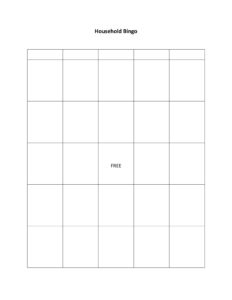
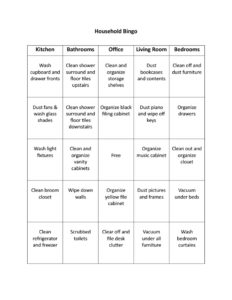 “bigger” tasks, maybe more than 20 minutes. She designed this card with ‘things that are bugging me’ in mind.
“bigger” tasks, maybe more than 20 minutes. She designed this card with ‘things that are bugging me’ in mind.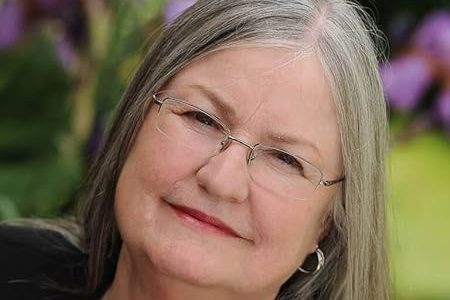
 I have the wonderful privilege of having wise and dear friends. When we can be together, we talk about the things that cause us trouble and what we are doing to ease the way. The issues the mothers we work with come up. I make notes and I share our thoughts with you. Sometimes the thoughts get buried in life for a time and then reemerge.
I have the wonderful privilege of having wise and dear friends. When we can be together, we talk about the things that cause us trouble and what we are doing to ease the way. The issues the mothers we work with come up. I make notes and I share our thoughts with you. Sometimes the thoughts get buried in life for a time and then reemerge.
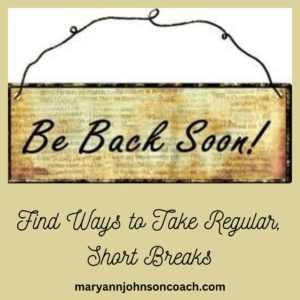 This last December I was able to spend three days by myself in the home of a friend. She was away and gave me the key. Can you imagine how fabulous that was for me? No one to worry about, or care for. No pills to manage or porta potty to empty. I was happy, but I didn’t do what everyone else might do. I had what I called ‘My Vacation List.’ I had to laugh because there were 22 things on the list I wanted to get done. It didn’t include watching movies, taking long baths, or going out to eat, although I did all three. : ) No, it was things such as writing 5 Facebook posts, writing a book review, cleaning up the photos on the phone, taking a tour of my MDM class, and deciding what classes to take at the Family History Library. Doesn’t sound much like a vacation, does it? But it was!!! These are the kinds of activities that recharge me. I LOVE getting on top of all the nitty things I never get to. : ) Order is restful and satisfying to me.
This last December I was able to spend three days by myself in the home of a friend. She was away and gave me the key. Can you imagine how fabulous that was for me? No one to worry about, or care for. No pills to manage or porta potty to empty. I was happy, but I didn’t do what everyone else might do. I had what I called ‘My Vacation List.’ I had to laugh because there were 22 things on the list I wanted to get done. It didn’t include watching movies, taking long baths, or going out to eat, although I did all three. : ) No, it was things such as writing 5 Facebook posts, writing a book review, cleaning up the photos on the phone, taking a tour of my MDM class, and deciding what classes to take at the Family History Library. Doesn’t sound much like a vacation, does it? But it was!!! These are the kinds of activities that recharge me. I LOVE getting on top of all the nitty things I never get to. : ) Order is restful and satisfying to me.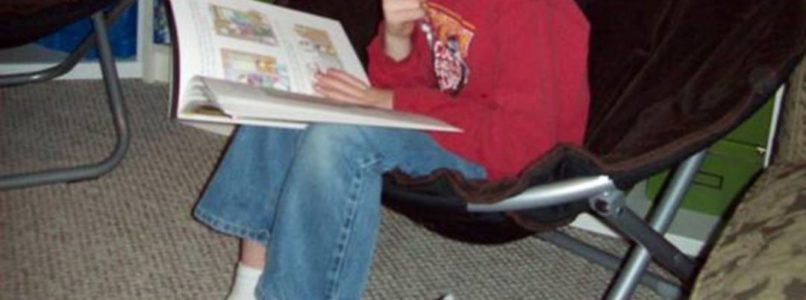
 Years ago, I spent a great deal of time with my grands that live in Utah. We lived one block away. This was before we consolidated our two families into a three-generation home. My daughter, Jodie, was homeschooling. At that time, I was teaching and mentoring mothers who homeschooled. Then I made a transition. I realized that many of the excellent things I was teaching applied to a whole spectrum of parenting, not just those who homeschooled.
Years ago, I spent a great deal of time with my grands that live in Utah. We lived one block away. This was before we consolidated our two families into a three-generation home. My daughter, Jodie, was homeschooling. At that time, I was teaching and mentoring mothers who homeschooled. Then I made a transition. I realized that many of the excellent things I was teaching applied to a whole spectrum of parenting, not just those who homeschooled.
 Every mother struggles to bring all that she has to the family table. We all want to teach our children to be kind, to have manners, to be honest, to do their chores, to share, and on and on. We also want to teach skills that can help them as adults. We desire to encourage them to develop talents for the joy of it. It can feel daunting.
Every mother struggles to bring all that she has to the family table. We all want to teach our children to be kind, to have manners, to be honest, to do their chores, to share, and on and on. We also want to teach skills that can help them as adults. We desire to encourage them to develop talents for the joy of it. It can feel daunting.
 I have a friend that I admire very much, Alysia Humphries. What got me thinking about her this last couple of weeks was that tonight (Saturday) I am going to a special event for caregivers. She and a handful of other women are giving some nurturing to caregivers. I fit into that group and so Alysia asked me to come. I am going to have some foot zoning done and Alysia is giving me some light therapy. Restful!
I have a friend that I admire very much, Alysia Humphries. What got me thinking about her this last couple of weeks was that tonight (Saturday) I am going to a special event for caregivers. She and a handful of other women are giving some nurturing to caregivers. I fit into that group and so Alysia asked me to come. I am going to have some foot zoning done and Alysia is giving me some light therapy. Restful!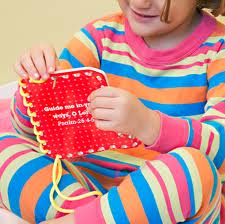
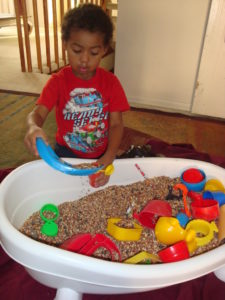



 I no longer make
I no longer make